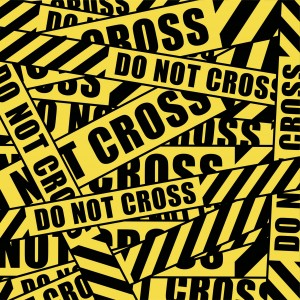
Patients presenting to their GP with a mental health problem are likely to be offered medication, in the form of antidepressants, and/or a ‘talking therapy’, such as counselling or CBT. This is because we know that both those broad categories of treatments (drugs and psychological therapies) are effective in reducing symptoms. However, it’s less clear if one is reliably more effective than the other.
At the same time, often we don’t know if those different types of treatment are better or worse for different disorders. In the world of evidence-based medicine, researchers are increasingly trying to move beyond just ‘what works’ to ‘what works, for whom?’ This information will be invaluable for GPs and their patients to inform their choices about treatment.
 Take a pill or talk to someone is a classic distinction made about mental health treatments, but we haven’t had clear evidence to say whether one is generally superior to the other. Pim Cuijpers’ team in the Netherlands have tried to answer exactly these questions, by performing a meta analysis of studies which have directly compared medications and psychological therapies.
Take a pill or talk to someone is a classic distinction made about mental health treatments, but we haven’t had clear evidence to say whether one is generally superior to the other. Pim Cuijpers’ team in the Netherlands have tried to answer exactly these questions, by performing a meta analysis of studies which have directly compared medications and psychological therapies.
What did they study?
The review included randomised controlled trials which directly compared a psychological therapy with antidepressants in adults.
In order to answer the question of whether the different treatments were better or worse for different disorders, the authors included a range of anxiety and depressive disorders.
They excluded trials which looked at ‘maintenance effects’, meaning trials which took patients who had already shown recovery from an earlier treatment in order to see if the positive effect was maintained.
They performed quality assessments on the included studies, and also performed subgroup analyses to test for differences within treatment and disorder groups.
What did they find?

The reviews combined data from 67 studies involving 5,993 patients.
67 studies were included in the final analysis. Bringing together all the studies, the authors had a sample of 5,993 patients (3,142 who received psychotherapy, and 2,851 who received antidepressants). 40 of the studies focused on depressive disorders, and 27 on anxiety disorders.
CBT was the most frequently used psychological therapy by quite a wide margin (49 of the 78 studies). The quality of studies was found to be variable, with only 20 studies meeting all four of the authors’ quality criteria.
When they combined all of the data from the different studies, they found no statistically significant difference between psychological therapy and antidepressants.
What about different conditions?
Turning to the question of ‘what works, for whom?’ , the authors reported that medication was significantly better than talking therapy for dysthymia.
The opposite was true for obsessive-compulsive disorder (OCD) which showed a significant effect in favour of talking therapies.
Thinking about specific patients ‘for whom’ the treatments may differ, the authors report that antidepressants were more effective for older adults and for patients who had a comorbid general medical disorder. However, it’s not clear how many such factors, and what kind, were considered – the authors simply report there was a significant difference between “different target groups” compared to “adults in general”, citing age and co-morbidity as examples.
Different treatments?
Looking at specific types of treatment, the authors report that treatment with a tricyclic antidepressant was less effective compared to talking therapy and non-directive supportive counselling was less effective than medication.
There were no significant differences between any of the other medications or types of therapy.
Conclusions
The authors conclude:
We can conclude that pharmacotherapy and psychotherapy have comparable effects in several depressive and anxiety disorders, but this is not true for all disorders, especially not for OCD and possibly dysthymia. Furthermore, most psychotherapies and pharmacotherapies are equally efficacious, but again this is not true for all treatments.
The analysis indicates that overall medication and talking therapies don’t have significantly different effects, and are likely to be of equivalent effectiveness.
However, there are hints that this isn’t the case for all treatments or all disorders. More sophisticated analyses of multiple treatments, such as network meta-analysis, may be helpful in future to try to disentangle this further. In terms of which specific patients may benefit (for example, comparing older to younger patients) again further work is needed.
The authors finish on perhaps a crucial point – that treatments may be equal in effect but be very different in terms of patient preference, an issue requiring further investigation.
Limitations
-

The review did not consider side effects of treatments.
There were very small numbers of studies available for some of the treatments – for example only 6 non-directive counselling and 4 psychodynamic studies, which might make it difficult to detect an effect. This also applies to types of disorder, with only a few studies looking at post-traumatic stress disorder, generalised anxiety disorder and dysthymia (note the use of ‘possibly’ dysthymia in the conclusion!)
- The authors point out that they only looked at treatment effects, and didn’t consider side effects, making the interesting point that it is only fairly recently that possible side effects of psychological therapy have been recognised, meaning they would likely be unreported anyway.
- There was considerable heterogeneity in the way treatments were performed, and statistical heterogeneity was ranked as ‘moderate to high’. While the answer therefore perhaps hints at a ‘bigger picture’ regarding talking therapies and medication, some may criticise the study for trying to synthesise findings across so many different types of illness and treatment.
Links
Cuijpers, Pim, Marit Sijbrandij, Sander L Koole, Gerhard Andersson, Aartjan T Beekman, and Charles F Reynolds 3rd. 2013. ‘The Efficacy of Psychotherapy and Pharmacotherapy in Treating Depressive and Anxiety Disorders: a Meta-analysis of Direct Comparisons’. World psychiatry: official journal of the World Psychiatric Association (WPA) 12(2): 137–48.
Mills, E. J., K. Thorlund, and J. P. A. Ioannidis. 2013. ‘Demystifying Trial Networks and Network Meta-analysis’. BMJ 346(may14 2): f2914–f2914. [PubMed abtract]
Wampold, BE, GW Mondin, M Moody, and et al. 1997. ‘A Meta-analysis of Outcome Studies Comparing Bona Fide Psychotherapies: Empiricially, All Must Have Prizes’. Psychological Bulletin 122(3): 203–15.

Meta analysis of antidepressants vs talking therapies: another example of ‘All Must Have Prizes’?: Patients pr… http://t.co/zx6fcDDGjP
@Mental_Elf they couldn’t bear the sight of pouting lips
@Mental_Elf meaning effect?
My first blog for @Mental_Elf! Meta analysis of anti-depressants vs talking therapies – http://t.co/MSMiAwcscg – by Cuijpers et al
@dr_know @mental_elf hmmm would it be unreasonable to add a ‘what this means for practice’ section?
@amcunningham good q! wonder if that might be overstepping from providing a (relatively objective!) summary? What do you think @Mental_Elf?
@dr_know @BPSOfficial @Mental_Elf no consideration for placebo effect? Assumes pills factual, simple and effective. They can really damage.
@leedargue @BPSOfficial @Mental_Elf Hi Lee, yes – mentioned in limitations that authors didn’t look at side effects (of either treatment)
@dr_know @Mental_Elf Interesting.
Congrats! :D RT @dr_know: My first blog for @Mental_Elf! Meta analysis of anti-depressants vs talking therapies – http://t.co/pmvStkc3v1
Meta analysis of antidepressants vs talking therapies: another example of ‘All Must Have… http://t.co/pWd0AmlSdD
This systematic review found no difference between drug and psychological therapies in depression and anxiety: http://t.co/qrpUp6fwR5
@Mental_Elf except that an antidepressant is a pill once a day and psychological therapies are virtually impossible to get on nhs.
Well done @dr_know on your blog: http://t.co/IoXOiVxCSy
The review only looked at randomised trials that directly compared drug treatment with psychological treatment: http://t.co/qrpUp6fwR5
[…] http://www.thementalelf.net/mental-health-conditions/anxiety-disorders/meta-analysis-of-antidepressa… […]
Mental Elf: Meta analysis of antidepressants vs talking therapies: another example of ‘All Must Have Prizes’? http://t.co/jLT4CRXH20
Antidepressants and psychotherapy have similar effects, but I suspect physician and patient preferences vary widely. http://t.co/CmIIEyHiAx
Do the drugs work – or is it better to talk? Review of different therapies – another interesting piece on @Mental_Elf http://t.co/PrvX0RKGN2
Meta analysis of antidepressants vs talking therapies: another example of ‘All Must Have Prizes’? – The Mental Elf http://t.co/wjn3bwSrB1
A new blog @Mental_Elf: Meta analysis of anti-depressants vs talking therapies – written by the Centre’s own @dr_know http://t.co/XXG4N0N8DV
Why are anxiety & depression together in this study? Depression’s not a unitary concept,why are its different levels not taken into account?
Meta analysis of antidepressants vs talking therapies: ‘All Must Have Prizes’? http://t.co/X3DBA2zVR9 via @dr_know @Mental_Elf
[…] on by antidepressants We need to know more about how to help adults who have experienced trauma Meta analysis of antidepressants vs talking therapies: another example of ‘All Must Have Prizes’… Systematic review exposes the lack of evidence for psychosocial interventions in patients with head […]
Runners up: @dr_know http://t.co/XCGr9AMb5v @markhoro http://t.co/becHU8f8z1 @JohnBaker_UoM http://t.co/XkODBBzeyN
@Mental_Elf well. This is ON. ;)
[…] beliefs. Anti-depressant medications like SSRI’s (selective serotonin re-uptake inhibitors) do work, and there are some reports of medication working where talking therapy fails (there is, […]
[…] beliefs. Anti-depressant medications like SSRI’s (selective serotonin re-uptake inhibitors) do work, and there are some reports of medication working where talking therapy fails (there is, […]